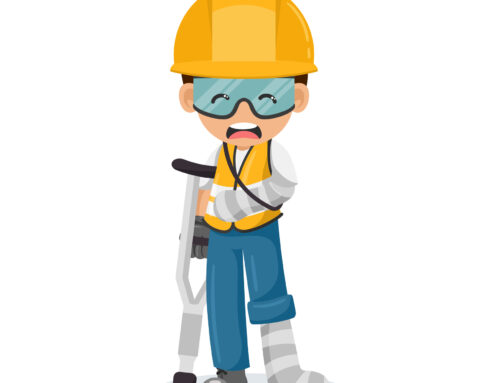Employees Not Returning to Work?
Shawnee Love • May 30, 2020
As we are reopening, restarting, and remobilizing across the country, many employers have reported their workers are unwilling to come back to work. We have noticed the reasons cited typically fall into three categories:
Personal / Family Responsibility
For employees whose personal health is compromised or they have to care for children (e.g., due to lack of childcare) or parents (due to the lack of long term care solutions), I encourage you to offer personal leaves for these folks and/or accommodate where possible as it relates to working from home. As with any duty to accommodate, all parties have a responsibility to be reasonable and employers have the right to inquire about timelines, plans in place to resolve the situation or recover, and to take action accordingly. In these cases, each situation is so unique, my best advice is to ask good questions to help you understand the situation and then move forward as is reasonable and in the best interests of those involved. The potential outcomes and options are diverse, so seek help from your advisors as needed.
Fear
There are rational fears and irrational. Rational fears occur when the employer hasn’t taken reasonable and appropriate measures to protect employees. Given there have been multiple corporate examples making the news across Canada, we shouldn’t be surprised that employees are fearful in the absence of knowledge about how you will keep them safe. (That is a reason why I encourage employers to communicate with their employees on layoff and to document their health and safety plan for returning to work.) Rational fears also exist when the employee or a loved one has health complications and could be seriously harmed even at high risk of death in the event of contracting the virus. Fortunately, Canadian employees have the right to refuse unsafe work, and every province and territory has appropriate protocols associated with how to handle those situations which usually look something like:
- The employee reports the unsafe work, and
- The employer reviews the situation and seeks to make it safe with a strategy which may include stopping doing it, providing new tools, administrative protocols/ policies, PPE/ barriers, training, etc. to make it safe in collaboration with health & safety committees and the worker ideally.
If the employee still feels it is unsafe, s/he can report the problem to the workers compensation board and have them assess as well, although with them overwhelmed currently, professional associations, competitors and consultants may also be helpful in offering new ways to handle situations.
Irrational fears are different though. These occur despite the fact that we have done an amazing job in Canada of managing our curves and we have exceptional information provided by our health authorities nationwide with clear guidelines towards protecting our staff and ourselves. I keep hearing about people who are terrified to return to their workplaces, some so traumatized they can barely leave their houses or think straight regarding the facts and risks. These people are requiring full protective barriers and gear (even when it contradicts the science) or waiting for the vaccine (which may never happen). I am not a doctor, but I am pretty confident there is going to be some version of post traumatic stress disease associated with COVID and these people deserve some grace while they seek therapy to heal. They may never come back to your workplace, but it is reasonable to offer them a personal unpaid leave while they seek care. As with all leaves, follow up and stay in touch.
CERB
The Canada Emergency Response Benefit was a blessing to many when it was rolled out. However, it has become a curse for many employers with some workers asking to have their hours reduced just so they can collect CERB and others refusing to return to work while they can collect it.
Some employers are having to cobble together a part time workforce by promising less than $1000 in work per month just to get people back and are still being refused by those who figure the extra $1000 isn’t worth the hassle or perceived risk.
I realize I am being judgy here, but that CERB benefit comes out of our pockets and we are going to have to pay for it at some point. Additionally, people refusing work in favour of collecting benefits is the opposite of good work ethic and so opposite to my values and those of most of my clients, that I don’t think those people will find a warm welcome in workplaces when their CERB runs out.
To be clear, if someone can’t come back to work due to Fear or Personal Circumstances and they are collecting CERB, CERB is a lifesaver, and I am grateful our government acted fast to support people. But I sincerely hope the CRA auditors are on their game when this is all said and done, because there are abusers and employers don’t want to be the bad guys for reporting those workers who are refusing work nor do they have time to file reports when they are fighting to survive.
My advice is to keep great notes on who refused work in favour of collecting CERB. For those laid off employees who are refusing to come back to work simply because they are receiving CERB (be sure no other reasons are in play), you may want to take the stance that refusal to return is a resignation. Just put it in writing and ensure the employee fully understands and agrees with the implications of them resigning, i.e., no further right to return work or receive severance or benefits, and if asked, you will be obligated to share this information with CRA. (This is not legal advice, and you may need some to ensure you stay in line with laws and agreements in place).
We hope these strategies (along with our previous series on restarting safely) help you navigate back to work successfully.
We are in this together.
#Buy Local





